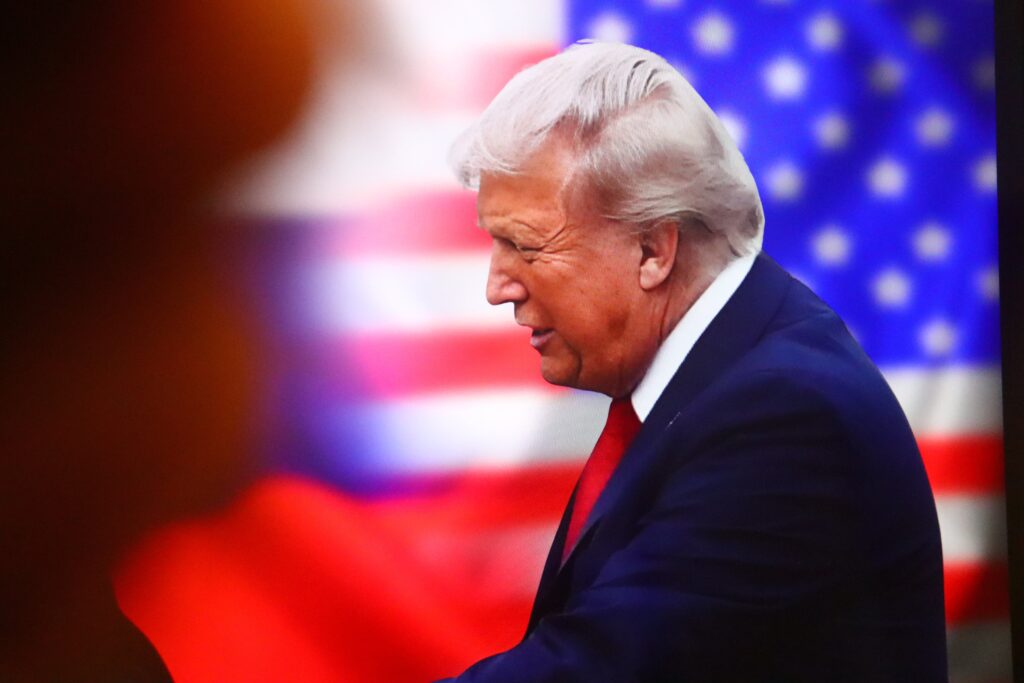Donald Trump renewed his threat to impose a 100% tariff on all movies made outside the United States. He claimed foreign countries had “stolen” America’s film industry. On Monday, he said California suffered most and that the tariff would “solve this long-time, never-ending problem.”
In May, Trump said he planned to meet Hollywood executives and begin imposing the levy. He warned that the American film industry was dying “a very fast death.” His statement followed last week’s new tariffs, including a 100% levy on branded or patented drug imports and 50% tariffs on kitchen and bathroom cabinets.
California hit hardest
Trump wrote on Truth Social: “Our movie-making business has been stolen from the United States by other countries, just like stealing ‘candy from a baby.’ California, with its weak and incompetent governor, has been particularly hard hit!” He added that the 100% tariff would cover “any and all movies made outside the United States.”
The president did not say when the tariff would take effect. The White House has not commented. Officials have not clarified if the levy would apply to streaming services like Netflix, theatrical releases, or both, or how it would be calculated.
Canada warns of economic fallout
The Canadian Chamber of Commerce said the tariff could harm US studios that rely on Canadian facilities, crews, and talent. Catherine Fortin-LeFaivre, senior vice president of international policy, said the levy could raise costs, reduce investment, and weaken competitive advantages. She warned it could threaten thousands of middle-class jobs in both countries.
Dan Coatsworth, investment analyst at AJ Bell, questioned how the tariff would work. Filmmakers often shoot abroad for better incentives. He said defining an American-made movie is difficult if films feature foreign actors, directors, or funding. Forced US production could increase costs, which studios might pass to customers, hurting streaming services and cinemas.
Investors currently see the threat as limited. Netflix and Disney stocks dipped briefly but recovered. Recent US studio films, including Deadpool & Wolverine, Wicked, and Gladiator II, were produced abroad.
US remains a top production hub
Despite challenges, the US continues to lead in global film production. Research firm ProdPro reported $14.54 billion in US production spending last year, down 26% from 2022. Countries attracting more spending include Australia, New Zealand, Canada, and the UK.
The UK government is monitoring the proposed tariff and its potential impact on British film. A Department for Business & Trade spokesperson said the UK film sector employs millions and generates billions for the economy.
Trump broadens tariffs on furniture and timber
Trump also announced 10% tariffs on softwood timber and lumber, and 25% levies on kitchen cabinets, vanities, and upholstered wooden furniture. Earlier, he hinted at “substantial tariffs on any country that does not make its furniture in the United States,” adding, “Details to follow!!!”
The tariffs take effect on 14 October. Some levies could rise next year for countries that fail to reach agreements. This follows last week’s announcement of a 100% tariff on branded or patented drug imports unless companies build factories in the US.


